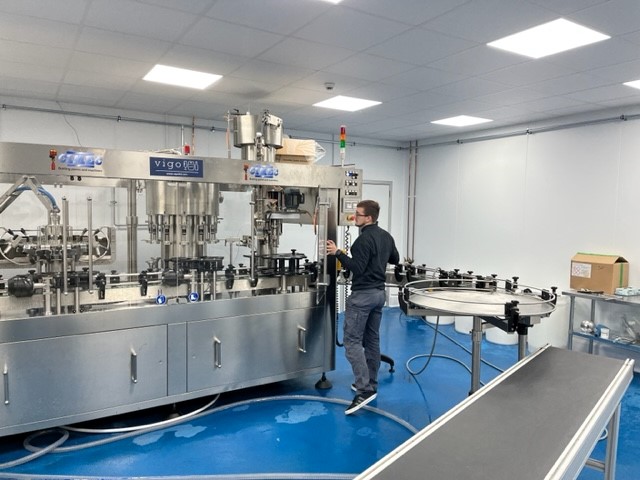The Government has confirmed its commitment to supporting devolution for Derbyshire, Nottinghamshire, Derby, and Nottingham.
Speaking remotely at a conference about devolution at the Crowne Plaza Hotel in Nottingham, Lee Rowley MP, Parliamentary Under Secretary of State in the Department for Levelling Up, Housing and Communities said: “We all know there is more that can be done and the opportunities to do more are ones we should seriously consider. We have an unrivalled geographical position in our country, brilliant transport links, and fantastic entrepreneurial companies.
“We are serious about wanting to empower the East Midlands.”
The event was also attended by the leaders of Derbyshire County Council, Nottinghamshire County Council, Derby City Council, and Nottingham City Council as well as other local political leaders, and representatives for universities and colleges, emergency services, businesses, and voluntary and community groups.
Devolution proposals for Derbyshire, Nottinghamshire, Derby, and Nottingham were discussed, and everyone was encouraged to have their say by taking part in the consultation, which is open until Monday 9 January 2023.
The conference included breakout sessions looking at specific aspects of the plans in more detail, including what devolution would mean for housing, transport, skills and adult education, and the environment.
Craig Parkin, chief fire officer at Nottinghamshire Fire and Rescue Service, said: “I think it’s hugely important. The public and the communities of both the counties and cities rely on their blue light services, and we need to know and be involved in the architecture and the design of the future of public services and how we serve our communities.
“I think it is great to see so many people from across both cities and counties here. People appear to be having a free opinion and a free voice about it, and that’s got to bring a lot of richness together and we need to be part of that.”
Natalie Gasson-McKinley, development manager for the Federation of Small Businesses, said: “The devolution bid and consultation is a fantastic opportunity for everyone across Derbyshire and Nottinghamshire to hear about the plans that are happening but also to help shape those plans.
“The scale of the opportunity is huge, done right. There are lots of decisions that are made centrally around adult education budgets, around infrastructure, transport, so to have the opportunity for local people and local decision makers to shape those things and to really impact them is a really once in their lifetime opportunity.
“For small businesses in particular, the opportunity to shape their local economic environment is crucial. There’s so much happening to businesses at the moment. It is a really tough and challenging time. So to have decision makers placed locally, who can really impact and make positive change, is everything to those businesses right now.
“I’d encourage businesses, communities, anybody really to get involved with the consultation and to speak to people about what’s happening, because it is really important to share those views about what you want to see.”
It is proposed that the new Combined County Authority, which would include representatives from existing local councils, and would cover Derbyshire, Nottinghamshire, Derby, and Nottingham, would be known as the East Midlands Combined County Authority (EMCCA). The EMCCA would be led by an elected mayor representing both counties and both cities.
The devolution consultation opened on 14 November and is due to close on 9 January 2023. It’s a chance for everyone in the area to have their say about the devolution proposals, and it is open to residents, businesses, community and voluntary groups, and other organisations.
An in-person devolution information event is taking place at Nottingham Council House on Wednesday 21 December for people without access or with limited access to the internet, with no need to book.
Residents can also find out more about the devolution proposals at an online public engagement meeting on Wednesday 4 January. People can join with no need to book, by visiting www.eastmidlandsdevolution.co.uk/have-your-say
The leaders of Derbyshire County Council, Nottinghamshire County Council, Derby City Council, and Nottingham City Council all signed up to work on a devolution deal on 30 August this year at Rolls Royce in Derby, following an announcement from the Government that a package of new powers and funding, worth £1.14 billion, were available for the area.
Since August the councils have been working on a more detailed proposal for how devolution would work in our area, which is the basis of the consultation.
The four councils agreed to go ahead with a public consultation in the autumn, so everyone has the chance to give their views on the plans.
Barry Lewis, leader of Derbyshire County Council, said: “Devolution is about getting a better deal for Derbyshire and the East Midlands and achieving a fair share for our region. It will bring us more money and mean we can make more meaningful decisions here, rather than in London.
“This deal will bring more and better jobs and opportunities for training, improve the local economy, result in better transport and housing, and accelerate our route to Net Zero. I encourage everyone to take part in the consultation and give us their views on devolution.
“A devolution deal, should it be agreed, would be the beginning, not the end. We’re determined to build on this deal over time, as other areas have done.”
Ben Bradley MP, leader of Nottinghamshire County Council, said: “It’s great news that we’re moving forward with devolution plans for Nottinghamshire and the wider area. I’m really pleased that we’re making progress with this.
“Devolution can bring real benefits for local people, as it has done in other parts of the country. It will mean more funding for our region, and the opportunity to have more meaningful decisions made here, near the people they affect, rather than in London, so they can be better tailored to local needs.
“This is an opportunity to create jobs, boost our economy, enhance transport, build more and better homes, improve our environment, and more, and we need to grab it with both hands. I don’t want our area to miss out on a chance to improve things for everyone who lives and works here.
“Devolution can help us be more effective locally, make better use of public money, and most importantly, improve people’s lives. It would lay the groundwork for us to build on in the future, to benefit future generations.
“I’d encourage everyone to take part in the consultation and give us their views on the devolution deal.”
Chris Poulter, leader of Derby City Council, said: “The East Midlands has long been overlooked and held back compared to other areas of the country. The cities and counties in our region should have a bigger voice, and this devolution deal would give us the influence, funding, and powers that we deserve.
“The investment in this deal will bring with it many opportunities. We could see more jobs, better transport and housing, an enhanced greener environment, and more value for money of services provided for our people.
“The proposals that we’re consulting on are just the beginning, and we’re determined to build on it over time. I would encourage everyone to give us their views on the deal by taking part in the consultation.”
David Mellen, leader of Nottingham City Council, said: “This deal has the potential to make a significant difference and local people would see the real benefits from the investment with more and better jobs, housing, training and much more.
“For too long this region hasn’t had the investment it needed and deserves – by working on a deal we can start to address this, but this is just the start, and I will make sure that we get our fair share and make the most of this funding.
“Importantly the deal would give us more control over our own area, where local people would have a say in the region’s priorities rather than decisions made in London. I look forward to hearing people’s views on the deal when the consultation launches.”
Devolution would provide the region with a guaranteed income stream of £38 million per year over a 30-year period, and would cover around 2.2 million people, making it one of the biggest in the country.
If the plans go ahead, it will mean a new regional mayor and it would create the first of a new type of combined county authority for the two counties and cities, which requires new legislation from central government.
The new elected regional mayor, like those who are already in place in other areas, would represent the whole area. The role of the mayor would be to look at major issues affecting the whole region, give the area a bigger voice, and take advantage of local knowledge and expertise.
As well as the £1.14 billion, devolution plans include an extra £16 million for new homes on brownfield land, and control over a range of budgets like the Adult Education Budget, which could be better tailored to the needs of people in our communities.
Devolution would mean that a future mayor and combined authority could:
- Work towards Net Zero and cleaner air with new low carbon homes, retrofit existing houses with external wall insulation, promote the use of renewable energy, and protect and enhance green spaces, like areas for wildlife and green verges.
- Build on the region’s existing knowledge and expertise in green technology and promote the growth of a future low carbon economy by investing in related skills training at colleges and other training facilities.
- Set up and coordinate smart integrated ticketing and enhanced concessionary fares schemes.
- Work with Homes England to build more affordable homes, by using new powers to buy land and housing (with district and borough council consent).
- Enhance the region’s economy by developing new commercial space to maximise opportunities.
- Work with national government on initiatives to address homelessness, domestic abuse, community safety, social mobility, and support for young people.
- Take advantage of economies of scale by using combined and devolved budgets to deliver more value for taxpayers and more cost-efficient services.
The four councils sent initial proposals to negotiate a combined devolution deal back in March 2022, after being named as pathfinder areas by the Government in February and then being invited to apply for a devolution deal.
The councils have been working with the Government to develop details of the deal, alongside discussions with district and borough councils, businesses, and other stakeholders.
If the devolution deal is formally approved, the Government would pass legislation bringing a new combined authority for the East Midlands into existence. The first election for a regional mayor for Derby, Derbyshire, Nottingham, and Nottinghamshire, would be in May 2024.
The regional mayor would lead the new combined county authority, which would also include representatives from local councils, with decision making powers and resources moving from London to the East Midlands. Local businesses would also have a voice, as well as other organisations.
The devolution deal would not mean scrapping or merging local councils, which would all continue to exist as they do now and would still be responsible for most public services in the area. The mayor and combined authority would instead focus on wider issues like transport, regeneration, and employment across both cities and counties.












